Advertisements
Being a parent can be hard work for the first few years of a child’s life. Those formative years account for much of the development of a young boy or girl – with each of your actions being absorbed like a sponge into your child’s brain and character.
Here, we outline some of the biggest mistakes young parents can make when they inadvertently pass on their undesirable habits to their offspring – watch out!
Mini Copycats
We all have little mannerisms or character traits that we develop throughout our life. Whether it’s drinking a little too much soda at dinner, or speaking badly about people, your child will notice it.
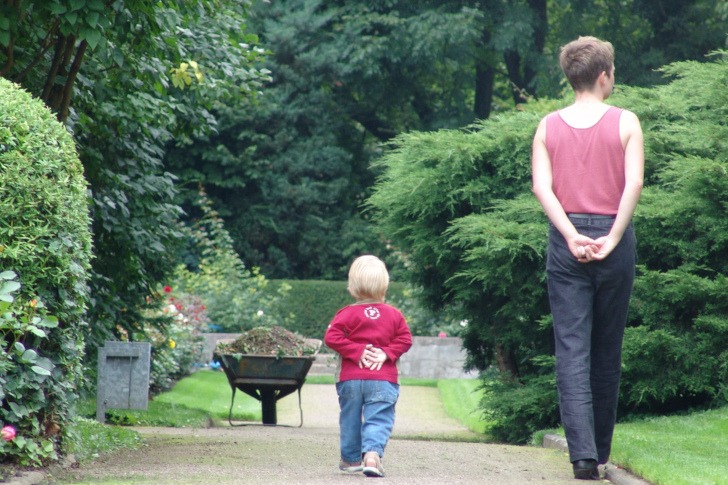
Flickr / Henning Mühlinghaus
What’s more, they won’t know any different – so someday they might end up carrying the same negative traits. Be careful what you say and how you act around your child – they’re a lot more observant and impressionable than you think.
Unhealthy Eating
When you are young and single, it’s easy to be lazy and order a pizza for dinner on any random night. Heck, maybe you didn’t even keep a fully-stocked fridge when you were entering adulthood. Now that you’re a parent, you must take the responsibility of feeding your child properly.

Shutterstock
When children are raised on cheap and unhealthy fast food, their body becomes accustomed to it and develops and must be combatted later on. Best to save Pizza Night for special occasions – get them eating healthy from the start.
Not Exercising
Studies show that just 20 minutes of brisk walking a day can have major health benefits. Unfortunately, children don’t always think ahead and rely on the hormonal excuse of tiredness or laziness to bypass on exercise. If you’re not active, why would they want to be?

deposit photos / fedemarsicano
Get your child into the habit of engaging in physical exercise, even if it’s just a quick walk or a game of soccer in the garden. The iPad can be a distraction, so maybe limit their use and give them access as a reward.
Gossiping
It’s very easy to meet with friends and talk about people you don’t like, but we all know it’s not a nice or productive thing to do. When your child overhears you, he/she might think it’s ok to engage in the same behavior.

istockphoto
Gossiping is a guilty pleasure that should be reserved for when we are with our friends – not a habit to pass on to young minds. It’s better to say nothing and have people think you’re stupid then to speak and remove all doubt!
Being Self-Critical
Young boys and girls are quick to watch and learn from their parents during everyday activities. Whether girls watch their mothers put on make-up, or boys see their dad building in the garage, these are formative years for growth and development.

Getty Images
It is therefore important to remind your child that accidents are sometimes ok, and that being too self-critical is unhealthy and counterproductive if too extreme. Be easy on yourself around your kids – they’ll learn to be more compassionate and tolerant.
Stubbornness
Sometimes we argue around our children when we are overtired and a bit grumpy. This should try to be curbed a bit, especially if your child is sensitive, but it’s also important for a child to see how conflict can be resolved with words.

shutterstock
Therefore, you better stop being so darn stubborn! It’s a horrible trait that is usually unhelpful in some circumstances, so don’t let your child pick up on it. If there is a conflict, take the opportunity to show your child how to compromise and listen.
Getting Easily Distracted
If you are teaching your child a valuable skill or lesson, it is best to stick with it until the end. Show them the value of perseverance and integrity by finishing any task that might be at the forefront of what you are doing.
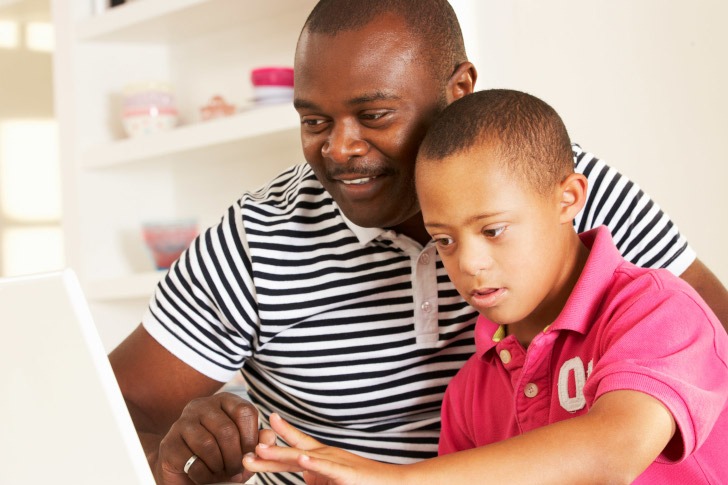
shutterstock
When your child sees you give up on a project or quickly move to something else, they will think it’s acceptable to give up on things as soon as things get tough. See it through to the end.
Photographing Literally Everything
We get it – your baby is precious. You want to capture as many moments as possible when he/she grows up, walks for the first time, speaks, or goes to school. But do we know the impact of having a camera in someone’s face for such formative years?

getty images
If you raise your child with a desire to take photos all the time, you have no idea what complex they might develop. Whether it enhances egotistical behavior or negatively impacts their self-esteem, you don’t want them to feel like they are the center of the universe.
Oversharing Intimate Moments on Social Media
Interestingly, young parents today are the first generation to have grown up with social media. Sites like Facebook and Twitter evolved alongside ourselves, and so we have more desire to keep updating our lives on it. But have you thought about how your child would want to be perceived?

Shutterstock
Not only do your friends find your post on your children annoying (sorry), but it’s also a huge invasion of privacy for your child. When something is on Facebook, it’s there forever.
Being Materialistic
We all love the idea of the new Apple Watch or overspending on a whim after a few drinks while shopping for things online. But we don’t want this materialistic habit to be passed on to our children.

imgur / mindwillspeak
If they see us caring too much for gadgets or fancy food, what will it do to their view on what is important? Less is more and family should come first – so make sure to teach your children the value of time and experiences.
Not Exploring The World
Somethings can be taught in the classroom, and others are learned from experiences we have from getting our hands dirty. Yes, your child might learn fractions from his/her teacher, but what knowledge can you impart on to your kid about the world?

Getty Images
Teach them about nature from walking around a park, or about a culture by taking them on holiday and talking to locals. Make sure they can see the important value in traveling to places and having experiences outside the classroom or television.
Fighting
While it is important to show a child the importance of compromise and discussion (see above), we should never spend too much time-fighting in front of children.
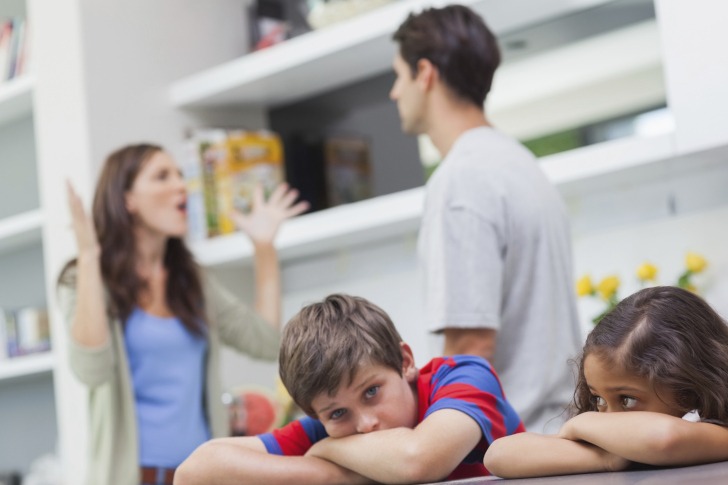
Thinkstock
Not only will this have a negative effect on their emotional state of mind and make them feel unsafe at home, but it will also set the foundation for how they think about dealing with conflict. Make sure to handle your fights productively – your child will benefit in the long run.
Being Overly Competitive
Inserting a little competitiveness into your child is never a bad thing. The value of taking part in team exercises can be beneficial, but if you happen to lose, remember: it is not the end of the world!
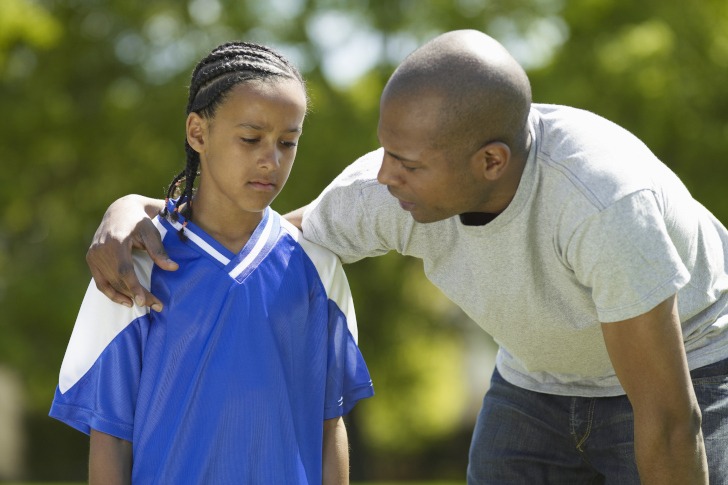
Getty Images/Fuse
Don’t place too much pressure on your child if they end up losing a game – they can try again in the future and work on succeeding in something else later on. It’s also worth remembering that every child is unique – don’t pit children against their siblings, classmates, friends.
Fussing Over Little Things
We all sometimes focus on the small stuff. But honestly, dropping a box of cereal really isn’t that much of a big deal. It’s not the end of the world and you don’t want your child to pick up on such dramatics. If they see you react so badly, what will they do?

Getty Images/iStockphoto
Someday, they might shout and scream at the sky when it rains, or swear at a changing traffic light. Daily inconveniences are part of life – save the panic for something greater.
Withholding Affection
Intimacy is an important sign of any relationship – parent and child is no exception. If you’re someone who does not easily engage in intimate affection, it might be worth trying to test yourself in how to show your child what caring for someone might look like.

WavebreakMediaMicro – Fotolia
No one likes too much PDA, so don’t stress about being too into it, but it can be a healthy way for children to see you engage in affection with them or your loved one.
Being Pessimistic
Children can be incredibly impressionable. When they grow up, their view on life is framed by their interactions with parents, teachers, and what they see on TV. If you’re having a bad day, it’s easy to see the bad side of life – but don’t let your child see it, too!

getty images stock photo
Pessimism is an unfortunate frame of mind that is enhanced through confirmation biases so imparting that into your child is a dangerous start in how they might end viewing the world
Being Rude About Your Child’s Friends
This one is closely tied to gossiping, but could be even more destructive. When your child is growing up, they need to be able to form their own opinions and relationships. As a parent, your duty is to support them – even if it means keeping your mouth shut sometimes!
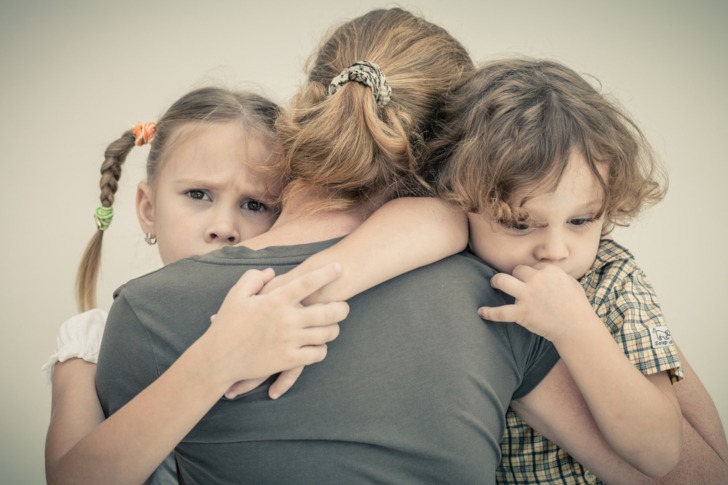
altanaka
It can be difficult to watch your child be friends with someone you may not like, but it can be dangerous for your child to see you speaking badly about their friend or parent (in the event you are experiencing a divorce). Don’t do it.
Being Over-Protective
We have some bad news for you: your child will get hurt in life. Whether your son will fall off his bike and scratch his knee, or your daughter will get her heart broken, they will experience pain.
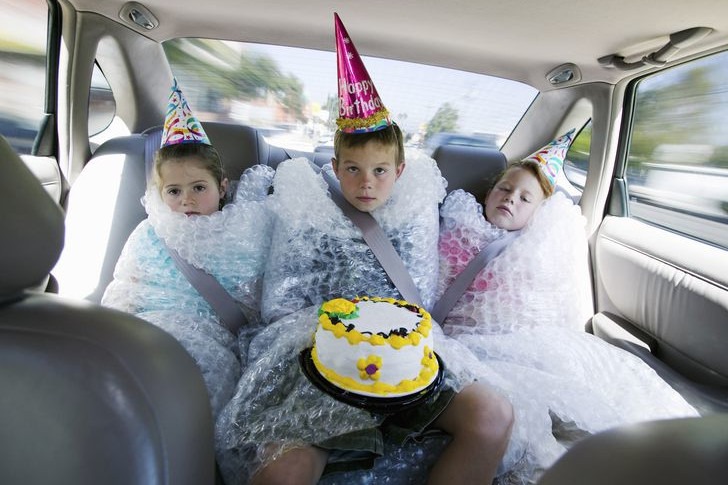
altanaka
Trying to prevent them from harm is counterproductive and will actually prevent them from being able to work things out themselves. Obviously, they have to remain, you know, alive, but that doesn’t mean you have to wrap them up in a bubble.
Not Setting Boundaries
No one wants to be the bad cop when it comes to parenting, and sometimes your child’s puppy dog eyes will pull on your heartstrings. However, it’s important not to lose sight of the importance of appropriate discipline.
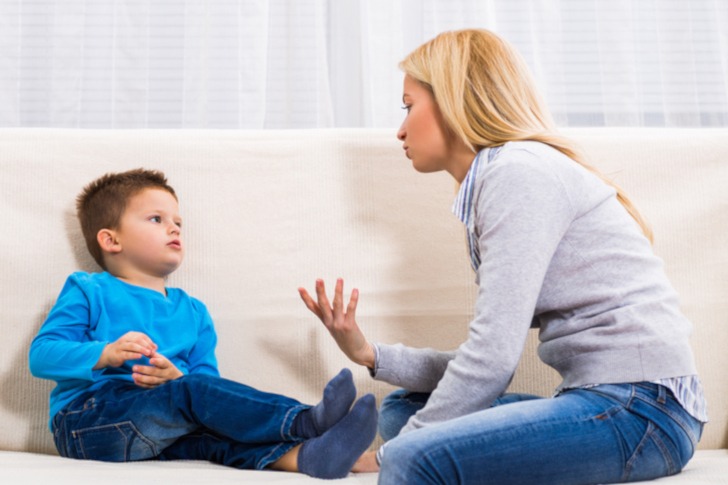
iStock
Children need rules and boundaries to teach them what is acceptable and what is not. If you don’t set them in place from the beginning at home, your child might have problems with authority at school or in the early stages in their career.
Dental Hygiene
Floss, floss, floss! Your child will not want to brush their teeth before bedtime or in the mornings, but you need to knock this habit out of them right away. Dental hygiene is one of the most important aspects of growing up – with drastic consequences.

Big Stock
If you don’t teach them the value of brushing twice a day, they simply won’t do it: and you’ll be paying thousands of dollars in fillings for cavities. Teach them to brush and they’ll respect other parts of their body, too.




